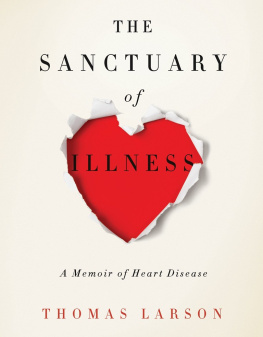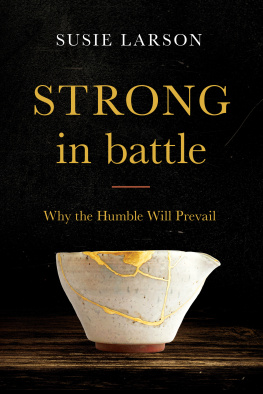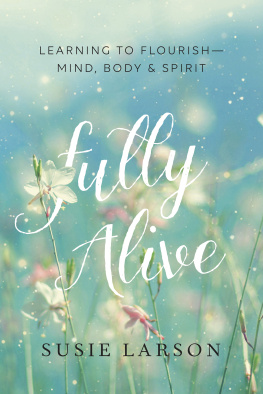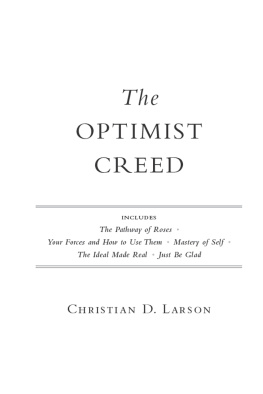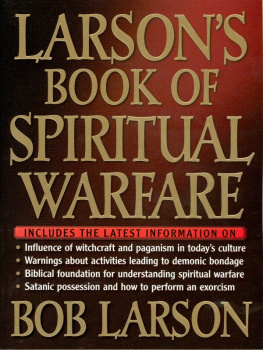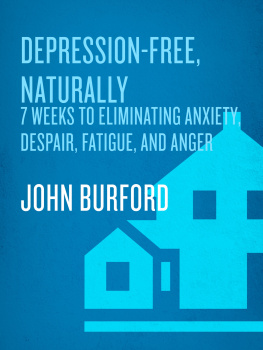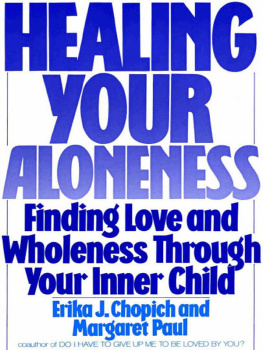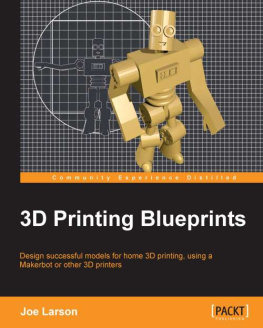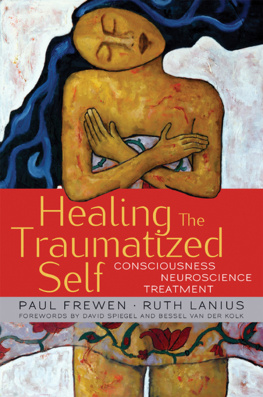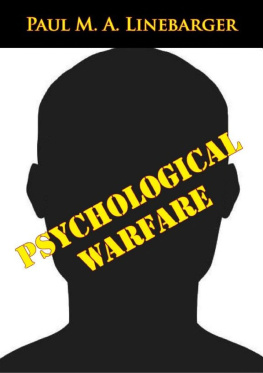Larson Paul C. - Psychological Healing
Here you can read online Larson Paul C. - Psychological Healing full text of the book (entire story) in english for free. Download pdf and epub, get meaning, cover and reviews about this ebook. year: 2017, publisher: Wipf and Stock Publishers, genre: Religion. Description of the work, (preface) as well as reviews are available. Best literature library LitArk.com created for fans of good reading and offers a wide selection of genres:
Romance novel
Science fiction
Adventure
Detective
Science
History
Home and family
Prose
Art
Politics
Computer
Non-fiction
Religion
Business
Children
Humor
Choose a favorite category and find really read worthwhile books. Enjoy immersion in the world of imagination, feel the emotions of the characters or learn something new for yourself, make an fascinating discovery.

- Book:Psychological Healing
- Author:
- Publisher:Wipf and Stock Publishers
- Genre:
- Year:2017
- Rating:4 / 5
- Favourites:Add to favourites
- Your mark:
- 80
- 1
- 2
- 3
- 4
- 5
Psychological Healing: summary, description and annotation
We offer to read an annotation, description, summary or preface (depends on what the author of the book "Psychological Healing" wrote himself). If you haven't found the necessary information about the book — write in the comments, we will try to find it.
Psychological Healing — read online for free the complete book (whole text) full work
Below is the text of the book, divided by pages. System saving the place of the last page read, allows you to conveniently read the book "Psychological Healing" online for free, without having to search again every time where you left off. Put a bookmark, and you can go to the page where you finished reading at any time.
Font size:
Interval:
Bookmark:
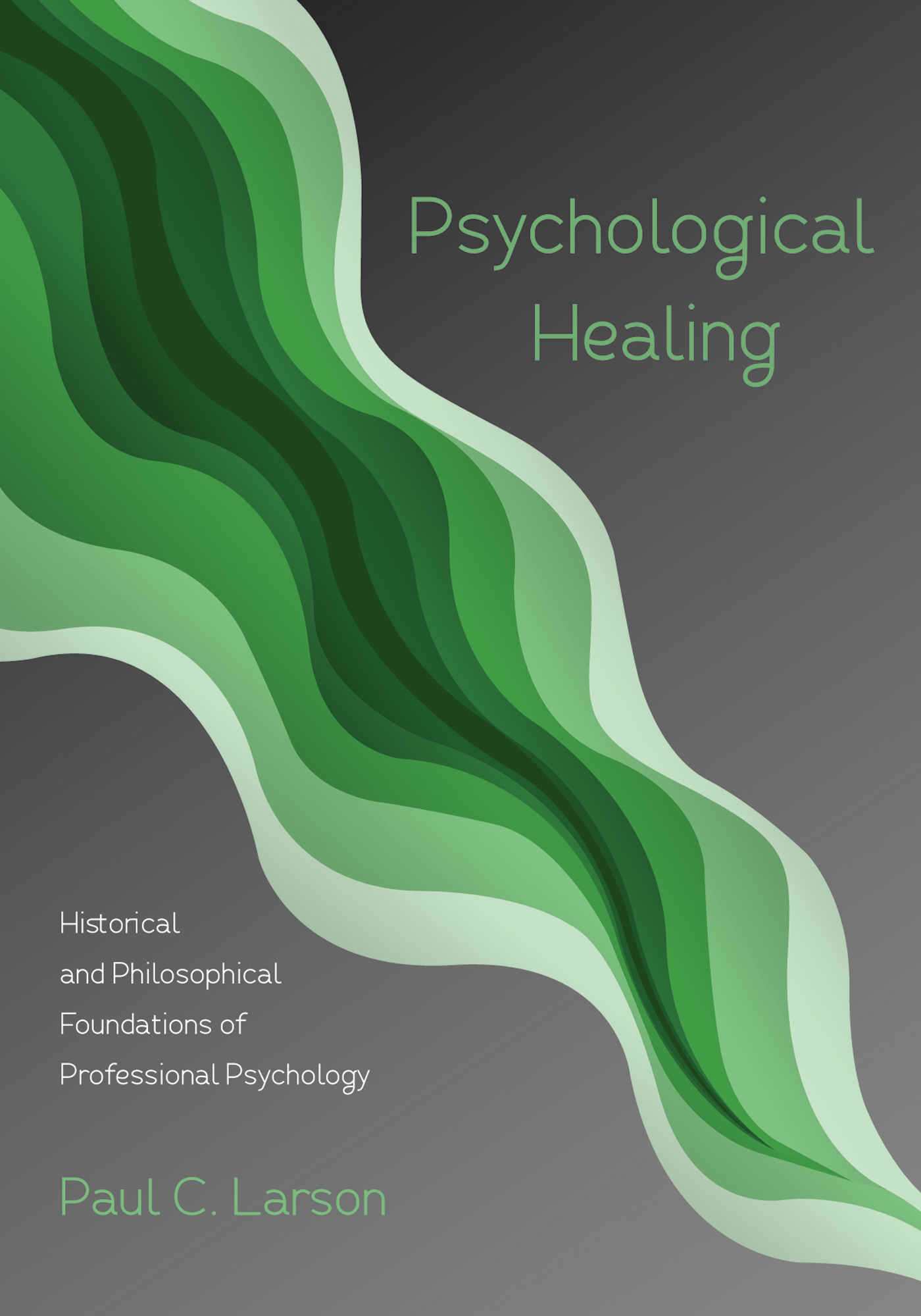
Historical and Philosophical Foundations of Professional Psychology
Paul C. Larson

Suffering and healing: The fiduciary relationship
T he focus of this book is the evolution of psychological healing. It was a deliberate choice to emphasizes this broader focus on the role of the healing more generally. The health service psychologist is one of many health care providers. In the field of occupational definitions, helping and healing are broad occupational categories with many specific occupations under that umbrella. They all share a common task of bringing improvement to the lives of those who seek help. Any understanding of the role of helping or healing must be grounded in an understanding of the nature of human suffering and the particular features of the helping relationship. The primary feature is the fiduciary nature of the relationship; it is built on trust. The second feature is the degree of preparation for assuming the role of healer. Let us tackle this issue first
Professional occupations
There are several features that define an occupation as a profession. One of the most important is the nature of the balance of power within the relationship. It is unequal. The client has a more urgent need for the professionals skill and good will to meliorate the problems the client brings to the encounter. It is this very asymmetrical nature of the helping relationship which provides the legal justification for regulation. The sufferer needs help; the professional can offer it. Recognizing this power imbalance is the basis for ethical constraints on the nature of the therapeutic relationship.
At its heart, the professional relationship is based on trust; that is, it is a fiduciary one. The client has an urgency of need that makes them vulnerable. The professional has both skill and expertise that the client needs. The client trusts the professional in several important ways. First, the client trusts the professional to perform certain functions in a competent and ethical manner. Second, the client trusts the professional to act to support the clients interests, not their own. Whatever guidance is given in the course of a professional relationship should benefit the client. Self-serving actions are seen as violating that ethical principle. The fee should be the only benefit the professional receives. The implication of this is that the concept of interests is central to understanding the fiduciary obligation of the professional. While this is a complex issue, one easy way of determining interests is to ask the question who has a stake in the outcome of the professional relationship, and what are the gains or losses that could result? There needs to be a clear understanding of the interests of the parties and an adherence to ethical standards of practice to insure that the vulnerability of the client is not an opportunity for exploitation or advantage to the professional.
We are not the only profession which is based in a fiduciary relationship. Indeed, one could generalize it to many specific occupational roles. Clearly all health care services are fiduciary. Lawyers, accountants and others have as one of their components the fact that clients must disclose deeply personal information in order for the skills of the professional to be effectively brought to bear on the matter at hand. The client, therefore, is vulnerable. One can make a case that even hair care professionals have a sort of fiduciary relationship, given the importance that appearance plays as a social signal. We trust that we will be able to project the type of image of our self we intend. But the trust we place in other occupations is less critical in many ways than health care and law. Two other aspects distinguish professional occupations from others; a longer education requirement and the necessity to use independent judgment in the application of the skill. The length of education is generally the main feature that we use to distinguish professions from other sorts of skilled service occupations which may also involve some degree of trust on the part of the client. Most occupations termed professions require post-graduate degrees (a masters or doctoral degree). All persons living in modern societies depend on the basic competence of people to do their jobs, be they operators of railroad engines or plumbers and electricians, but the health care professions are among the most demanding in terms of the time for preparation because the knowledge and skills are so complex. The current market place also contains a wide range of non-licensed care givers with few or no regulation of formal training or preparation. Life coaches, psychic readers and advisors and other lay healers are sought out and readily found in most communities. Spirituality rather science is often the major epistemological basis for their claim of a power to heal.
The second aspect of professionalism is the independent exercise of judgment in a complex fiduciary relationship. This is the basis for the license to practice independently without supervision provided as an employee in an organization. The successful use of good judgment is rewarded by clients referring other clients; its failure can result in loss of license, lawsuit for negligence, and other sanctions including mandatory supervision and further training. The various codes of ethics supplement state regulations as hedges around the exercise of judgment.
Medicine has traditionally allowed only doctoral level practitioners as independent licensed practitioners, though nurses with masters degrees and physicians assistants with bachelors or masters degree often exercise wide-ranging independence, especially in rural areas where direct contact with a physician may be difficult. In the psycho-social arena of healing, masters level practitioners also have been granted independence of practice. The front line of mental health services is now carried out largely by masters level practitioners. Indeed, one of the challenges of the modern professional psychologist will be to identify and offer those additional services that the doctoral degree can offer such as supervision, administration, program development and evaluation.
Suffering.
Lets face it, no one wants to see a psychologist. People come to see a therapist only when their own resources for self-help have been insufficient. A person generally comes to encounter a professional helper during a period of distress, though the complaining party may sometimes be the people who have to live with the person. Clients usually have been suffering for some time, trying self help or other means, until they are forced to acknowledge things arent working well.
The clinical context touches upon the deepest aspects of our vulnerabilities as humans, our distress at loss, change and, often, just ordinary existence. Faced with the existential reality of knowledge of our own ultimate death, we nonetheless move forward and create or find meaning in the various activities and relationships of our world. At times we cannot quite seem to fill that existential void and feel a sense of meaninglessness or perhaps a more free floating sense of being uprooted and drifting. Whether the crisis that brings someone into see a psychologist is an acute trauma or loss or a subtle shift in an on-going malaise that now can be no longer tolerated, people come to seek our care when they feel weak and incapable.
Font size:
Interval:
Bookmark:
Similar books «Psychological Healing»
Look at similar books to Psychological Healing. We have selected literature similar in name and meaning in the hope of providing readers with more options to find new, interesting, not yet read works.
Discussion, reviews of the book Psychological Healing and just readers' own opinions. Leave your comments, write what you think about the work, its meaning or the main characters. Specify what exactly you liked and what you didn't like, and why you think so.

